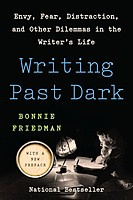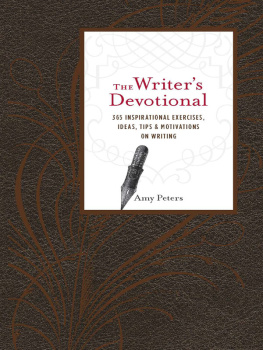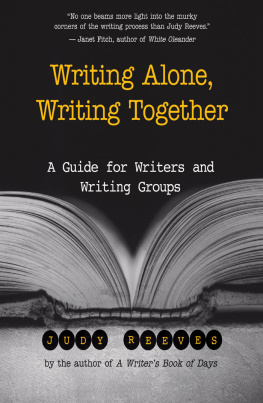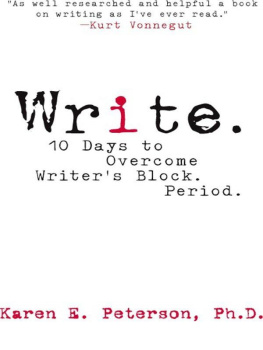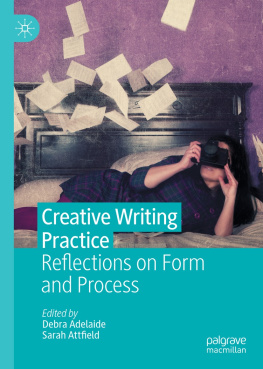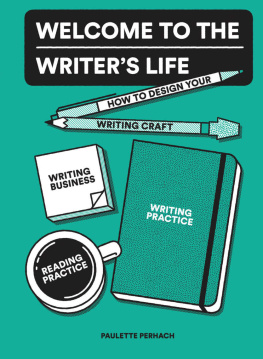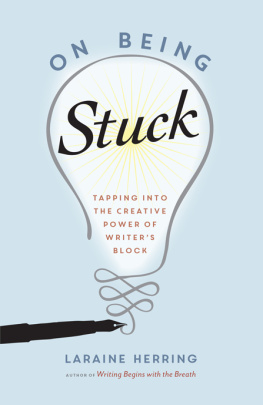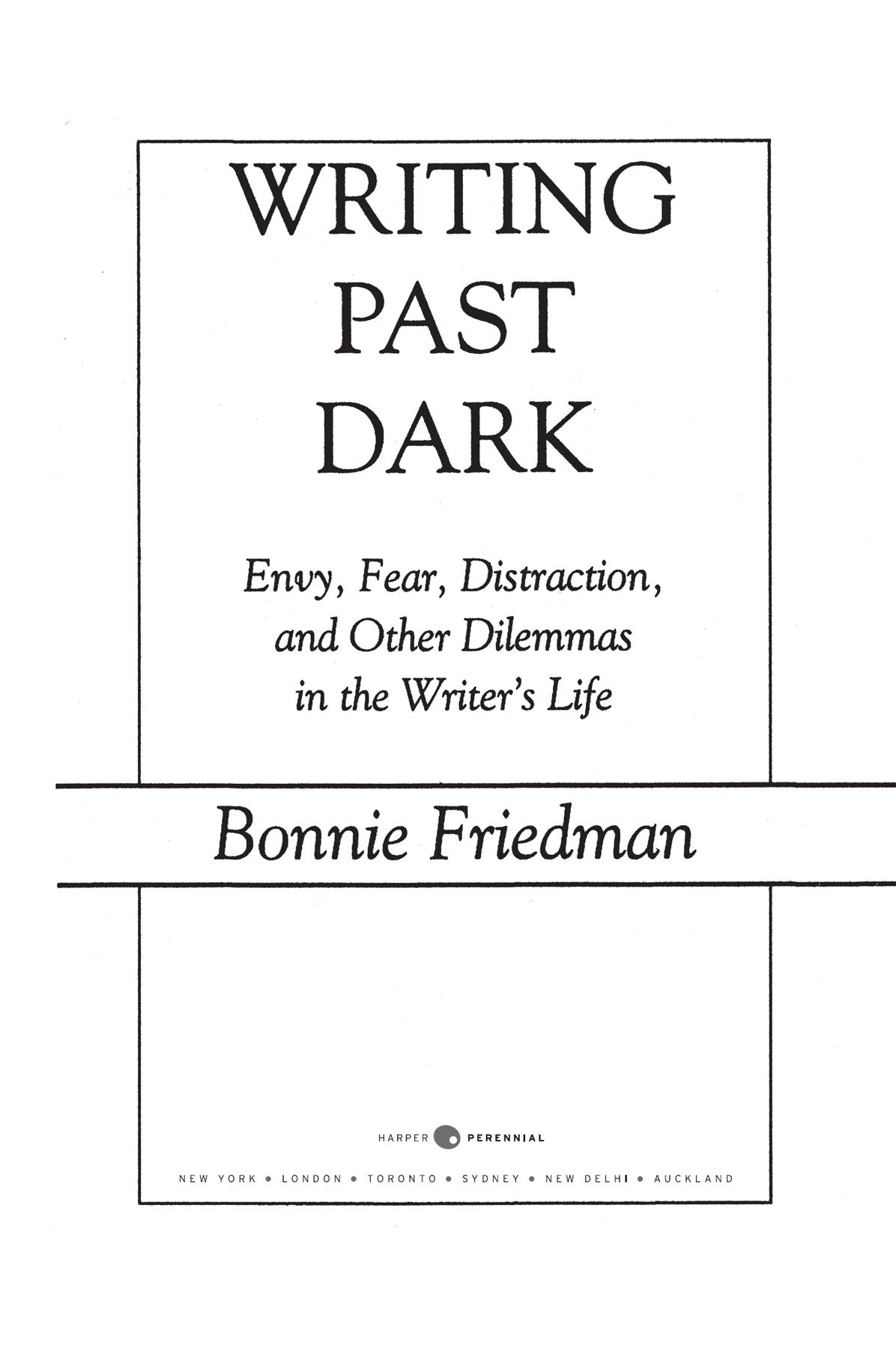Dedication
For my parents,
Lawrence and Elise Friedman
Epigraph
One does not become enlightened by imagining figures of light,
but by making the darkness conscious.
Carl Jung
Wet with morning dew,
I go in the direction I want.
Santka Taneda
Table of Contents
Preface
S O MUCH IN THE WRITERS life used to torment me, but I could not talk about it. I felt wrong and ashamed. I had no idea that there were actually important reasons why particular things afflicted me, that my difficulties with issues like envy, distraction, and procrastination indicated significant and revealing areas where Id gotten myself snagged. No, I assumed that the problems were unfixable (I was stupid) and also simply in the nature of writing (the craft demanded misery). Werent many writers depressives? Wasnt the work itself famously onerous?
It was many years before I investigated what was harming me. By then Id developed sufficient awareness to notice that tucked within each problem was useful information about myself and my way in the worldand an implicit suggestion about how to live differently. For, to my surprise, while conducting my inquiries I often uncovered something that made me more whole. It was as if, in some unremembered back-story of my life, Id buried and hidden away essential richesestranged aspects of myselfand then provided myself a treasure map in the form of my own neuroses.
An even greater surprise awaited me when the book I published about all this was received with warmth. Its separate essays were anthologized and then anthologized again. Prominent writers wrote me that they found the book of use. Two decades after it was published, a stranger in San Antonio exclaimed when we were introduced, I have Writing Past Dark on the little shelf of special books near my Bible. I blinked, startled. I would have liked to ask her about that but was too shy. To what exactly was this reader responding? Was it the same trait as the woman whod told me that she reread the book so often shed fixed the binding with duct tape?
Id written the book undergroundliterally in a basement area that smelled of the dank earth and of the big oil furnace behind meand I associated the books success with this. There was something instinctive and even feral about the way the book progressed. It lit up dark passageways that others had obliviously stepped past. Its method was associative and psychological and, on occasion, even dogged. I wrote it in my early thirties because I needed answers. Even then I could tell that life went fast and that there is no reward for unnecessary suffering. With unnecessary suffering, all that happens is that you squander the prize that others worked hard to bestow. My Bronx grandmother had been a widowed seamstress who worked from six in the morning until past midnight (a slave to the sewing machine, my mother said). My grandfather on my fathers side had a candy store in Brooklyn that was closed just two days a year, the two most sacred days of the Jewish calendar; my fathers entire childhood he almost never saw his parents together except in the store. It seemed to me that all the hard work theyd put into providing their children and grandchildren with a better life was misused if I allowed myself to choose blundering, habitual unhappiness, even in the name of art.
One of the things I needed to figure out was why I spent so much time sick with envy. I also wanted to know why it was so very hard to feel good about my work in any kind of sustained way. Id noticed that those who did manage to feel good about their work got more done and advocated for it more effectively. They were also able to improve more dramatically. I noticed, as well, that there was no necessary correlation between those whose work was excellent and those who felt good about their work. As a professor, especially, Id observed that certain people had been trained to feel good about what they did while others had not, and that they carried these attitudes into the classroom and back out again.
For instance, one student, an insurance salesmans son with hair so gelled that it resembled quills, always took the seat directly across from me, and preened when his mediocre work was discussed. A different young man tucked himself behind others in the corner of the room, clearly loathing his own work although it was highly original and resonant. At times I recalled my own first fiction-writing class. The teacher, Gilbert Sorrentino, had told us with surprising bitterness about the single student hed ever really encouraged to pursue a life in writing. The young man had quit. Sorrentino made it seem as if this golden boy of writing, the one to whom hed given his regal blessing, had betrayed the teachers generosity. Whereas here we were, rows upon rows of us on the first day of class at The New School, gazing up at him in his khaki camouflage jacket and combat boots, our ignorance and hope obviously constituting a colossal irritant. He glowered over the tops of our heads.
Look what happened when I encouraged you last time! he implied. Uh-uh. No frickin way am I going to encourage you again. That Introduction to Fiction Writing class started as a lecture holding at least 75 students but dwindled until, by semesters end, only about twenty remained. What trait had allowed some of us to stick with it, to keep learning from this master artist who laced his brilliance with arsenic? Lovely to think it was our own great prowess but, no, I think it was just our jumbo need. That need outweighed all else. It wasnt fair, it wasnt right, but it gave us an advantage over those more sensitive souls (potentially better writers) who quit attending. Sitting in my basement, I remembered Sorrentinos lectures a decade later, and they still provoked and enriched. I wondered how it might be that, even equipped with the masters blessing, one could relinquish a life in writing whereas, deprived of it, one still pursued ones literary path.
I was curious, as well, about the lure of distraction, the terror of the page, the yearning for perfection, the hunger for a mentor, the ethics of writing about the living, the need for and frequent impossibility of accepting advice in writing, what we mean by success, and the role of idiosyncrasy in all thishow you can learn to sound like yourself. I wanted to understand the emotional side of the writers life. I wanted a self-care kit for the long hike ahead.
Most people wrongly assume that writerly self-care happens by itself. That it doesnt require special thought. That when the work is good, you automatically know its worth defending. In the meantime, you think, practically anything that hurts is likely making your work stronger. You assume that when the work is good, the value of your work will rise up from the page and persuade you, perhaps overwhelm you. Even knowing that you are not objective, you believe that when your work fails to convince you of its value, the fault is in the work.
Which is unfair, of course. After all, some of us take better care of our work and some take worse. Some share work with those who provide only acidic corrections or who are uncomprehending. At a certain point in my own life I noticed that when I shared my work with certain people it came back smaller and duller, as if it were a sweater that had been thrown into a scorching clothes dryer. Others handed my work back the same size as before, but somehow glowier and more exciting, more viable in the world, even while they alerted me to its problems. Both groups were quite smart but there was a world of difference in how I felt about my work after Id shared it with them. It took me years to see this, because some of the very smart but destructive people were dear to me and because I assumed that very smart people are always of use.

